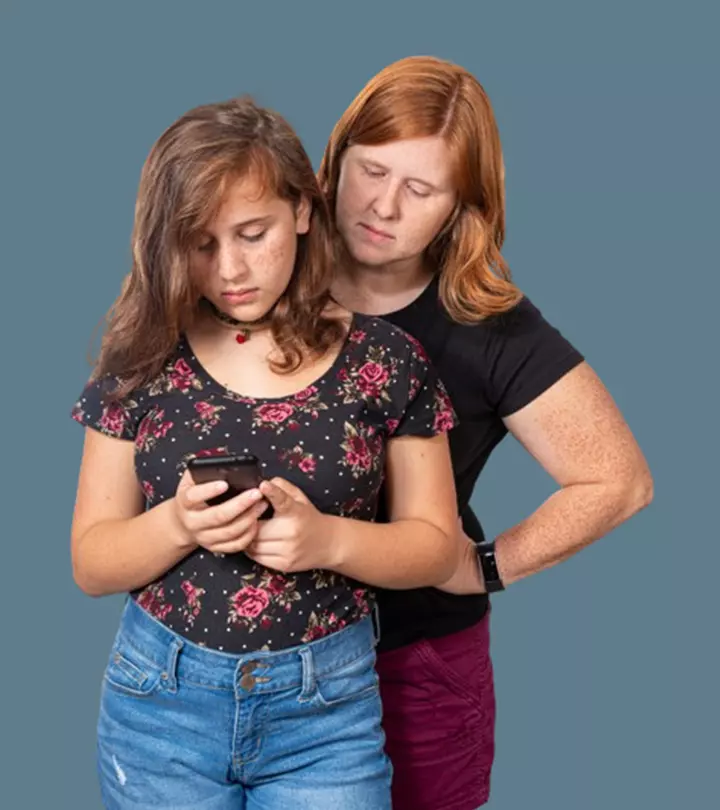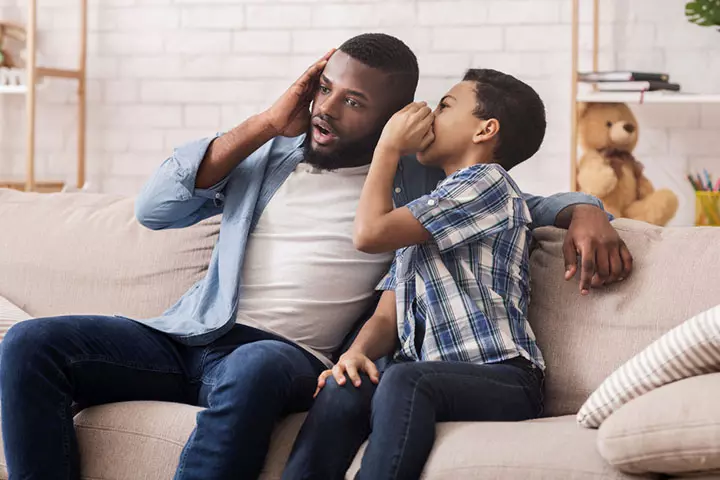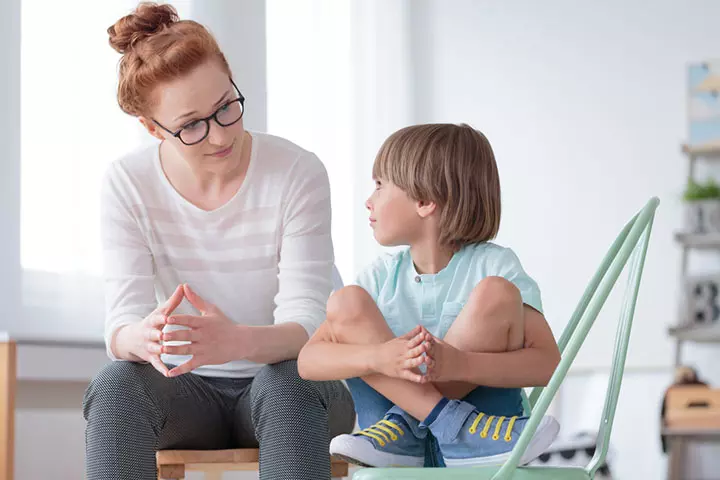
Image: Shutterstock
Being a parent comes with the responsibility of keeping your kids safe and ensuring they grow into well-rounded individuals. However, sometimes, the urge to protect them may lead you down the path of invading their privacy. In this article, we’ll delve into the negative impacts of going through your kid’s belongings, focusing on mental health, life lessons, and the potential strain it can put on your relationship. In this article, we’ll discuss practical ways to grant your children the privacy they need while maintaining a healthy connection. Read on to know more!
How Does Invading Your Kid’s Privacy Affect Them?
Image: Shutterstock
1. Invading Privacy
Constantly snooping through your kids’ possessions, while well-intentioned, can inadvertently lead to distress. This invasion of their privacy creates an atmosphere filled with anxiety and stress. Just like adults value personal space, children need the freedom to express themselves and make mistakes without feeling constantly judged. This intrusion may result in heightened levels of anxiety, hindering your child’s ability to be themselves.
2. Learning Requires Space
Life is an excellent teacher, offering growth opportunities at every turn. However, constant surveillance can hinder the learning process. Allowing your kids to make their own choices, even if they stumble, is crucial for their development. It’s akin to learning to ride a bike; constant guidance prevents falls but deprives the child of mastering balance. Similarly, letting your children face challenges, make decisions, and confront consequences fosters resilience and independence.
3. Snooping Strains Relationships
Image: Shutterstock
Trust is the foundation of any healthy relationship, and snooping through your child’s belongings sends a clear message – you don’t trust them. Trust is a mutual endeavor; if you want your kids to trust you, you must reciprocate. This invasion not only erodes the trust between you and your child but can also create a divide. Your child might start keeping things from you, not necessarily due to mischief, but because they crave personal space. A strong relationship relies on open communication and trust, both jeopardized when privacy is invaded.
4. Impact On Emotional Well-Being
The toll on your child’s emotional well-being due to constant intrusion might be silent but it is profound. Beyond heightened anxiety, this invasion can lead to a diminished sense of self and confidence. Imagine a young plant trying to grow in a confined space – it may survive, but its full potential is stunted. Similarly, children need the freedom to explore and define themselves without constant scrutiny.
5. Stifling Creativity And Expression
Privacy is a breeding ground for creativity and self-expression. Constant surveillance acts as a silent censor, inhibiting your child’s ability to explore and create freely. Creativity often thrives in solitude, and when children feel their every move is scrutinized, it can hinder the development of their unique ideas and talents. Providing them with the space to be themselves fosters a nurturing environment for creativity to flourish.
6. Struggling With Decision-Making
Image: Shutterstock
Constant intervention in your child’s life choices can hinder their ability to make decisions independently. Learning to understand choices, even if it means making mistakes, is crucial for personal growth. Imagine a ship with a captain always giving orders – the crew won’t learn to sail on their own. Allowing your kids to handle their decisions helps them develop a sense of responsibility and decision-making skills crucial for adulthood.
Respect Their Space
Image: Shutterstock
Finding the right balance between keeping your kids safe and respecting their independence is crucial for healthy family dynamics. Here are practical steps to provide your children with the privacy they need while fulfilling your role as a responsible parent:
1. Open Communication
Initiate conversations with your kids regularly. Inquire about their day, interests, and concerns, and genuinely listen. When your kids feel heard and understood, they are more likely to share willingly. Establishing open communication lays the foundation for trust.
2. Establish Boundaries Together
Include your kids in discussions about household rules and boundaries. By involving them in decision-making, you not only set clear expectations but also foster a sense of responsibility. It becomes a collaborative effort, similar to a team working towards a common goal.
3. Teach Them Privacy
Image: Shutterstock
Help your kids comprehend the importance of privacy. Explain that it is not about concealing things but about having personal space. Make it clear that you respect their space, and in return, they should respect yours. Mutual understanding is key in building a healthy relationship.
4. Give Them Their Own Space
Designate a specific area in your home where your kids can have some personal space. It could be a study corner or a cozy chair in the living room. Having a space that belongs solely to them promotes a sense of control and respect.
5. Trust Them Until Proven Otherwise
Trust is earned, and unless you have reasons not to trust your kids, give them the benefit of the doubt. Granting them the opportunity to prove themselves trustworthy strengthens your bond and encourages responsible behavior.
Parenthood is a delicate balancing act. While the need to protect your kids is paramount, respecting their privacy is equally crucial. It’s a process of understanding and trust-building that lays the foundation for a robust, respectful relationship with your kids.

















